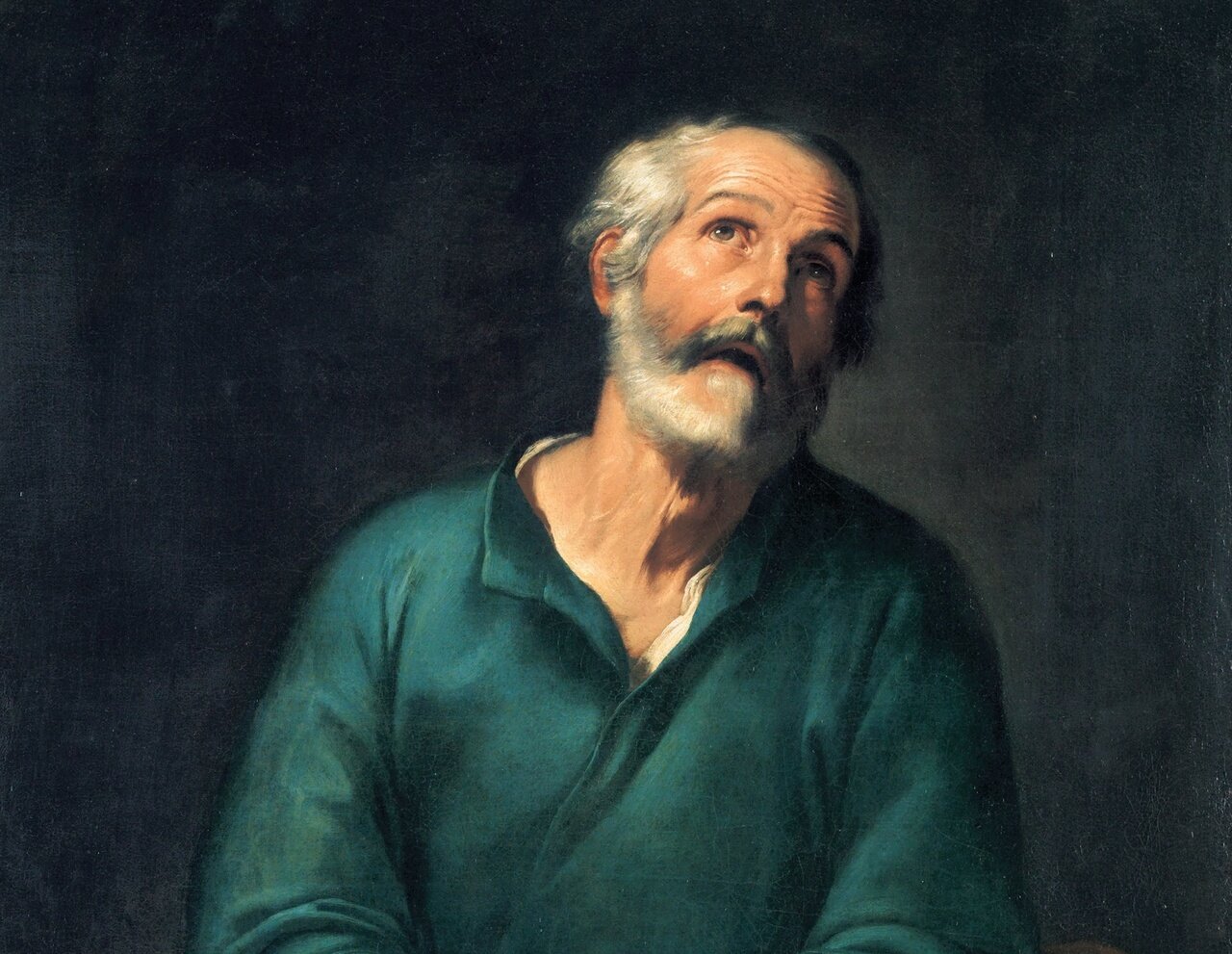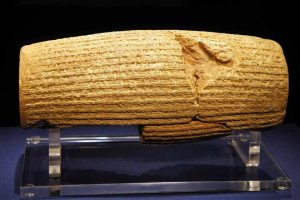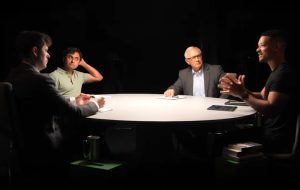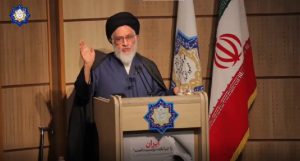According to the news agency Online NewsReza Dastjerdi in a conversation with Hussein LongThe author of the book “Error Electric Sana’a?” By writing an introduction, it emphasizes that it is not a misconception if we call “the issue of evil” the most pervasive subject of philosophy of religion. Who has not been given to the treasury of the prophets and pains of the universe? Where was my God in the case of calamities and disasters? Why didn’t I help me in floods, illness, war and rape? As long as these questions are in the minds of the people, the “issue of evil” is also the guest of the minds of philosophers and theologians. So there is no need to mention the importance of the subject.
But the book “Error on the Font? The moral and evil God “by Hussein Leftur, in addition to presenting the” evil matter “interpretations and responses, has taken it from the perspective of ethics, because there is a secret default in this matter, and that is the morality of the god of monotheistic religions. In fact, the “issue of evil” has targeted our moral conscience, and emphasizes that God commits an immoral decision and action in the case of different evils. Given this point, as well as the avoidance and ambiguity in the book, the act and decision of God are separately based on the different criteria of the three well -known ethical schools. Consequence, duty, and ethics of virtueExamined. What follows is the result of Ibna’s conversation with Hussein, a philosopher and author of the book, which has been published by Taha.
****
Why did you decide to examine the “issue of evil” from the perspective of ethics, not merely theology or philosophy of religion?
The initial idea of this type of entry came from the discussion of the “issue of evil” from dialogue and consultation with Dr. Fanai, and you probably know that he is one of the leading professors of ethics in Iran. But apart from this, there were two reasons. First, because most of the traditional issues in the “issue of evil” have focused on logical and theological responses; For example, the kind of logical arguments of the incompatibility of evil with divine attributes or its inductive and possibilities. Although important, these approaches are important, but they ignore an important aspect of the problem: the human experience of evil and ethical reaction to it.
The other is that previous studies have been less coherent to the moral analysis of this issue. For this reason, we tried to re -read the “issue of evil” in the context of the three main schools of philosophy of conscientiousness, consequence, and virtue, to clarify what these ethical devices explain natural and ethical evil.
The advantage of the moral view is that instead of focusing on the proof or absence of God, it deals with the responsibilities, requirements, and meaning of human action against evil. Because I think even if the logical issue of evil is philosophically resolved, the empirical issue of evil (meaning how we face evil and how we should organize morality in an evil world) remains. It is here that the philosophy of ethics, by emphasizing responsibility, virtue, and duty, promotes a new horizon to understand evil.
In addition, as stated in the book, the “issue of evil” in all kinds of readings is not so explicitly explicit, as if God is committing an immoral practical, when evil occurs in the universe. Therefore, it is natural that an independent research will analyze the “issue of evil” from the perspective of ethics. But which one of these goals was achieved in the book is his judgment with readers. Here I only stated my cause and motivation.
You have said that your religious studies have begun by Ali Shariati. How did Shariati affect your view of the “issue of evil”?
It is clear that it had no effect directly, because they did not deal with philosophical discussions, in general, and the philosophy of religion in particular. But their indirect and influence on this, as the author of the book, is undeniable that its signs can be pursued in the way they pay, so that their exposure to the religious world, not through the path of traditional beliefs, but through the path of conflict with suffering, liberation, justice and human responsibility. Where various issues are not only metaphysical or theological, they are also considered as an existential subject. It can be said that translating all of them into the “issue of evil” becomes evil as a wound, not just a logical issue.
Of course, I should also note that if this book is dedicated to the late Shariati entitled “Teacher of Pain and Religion”, It is merely a religion and does not mean today’s author of the author with their views. Even though you may not accept much of your teacher’s opinions and opinions, this disagreement does not prevent you from appreciating. On the sidelines, With all the criticisms that may be, I have Shariati’s works today, but I believe that there are still significant insights in their works that can be used if they are erased from time and ideology. But let’s go through this discussion, which requires more detail than this conversation.
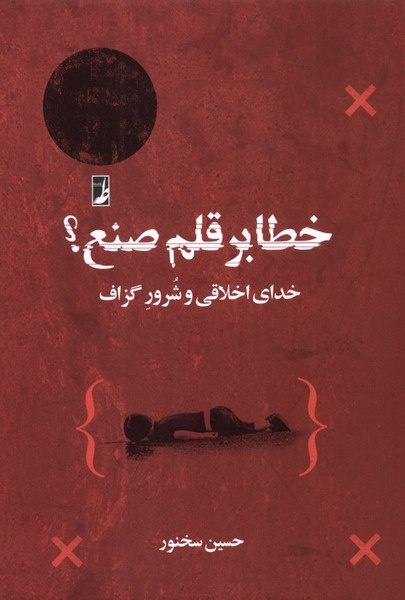
In the book, you focus on the three schools of ethics (conscientiousness, conclusions, and virtue, and virtue. Which of these schools do you think gives a more convincing explanation of evil?
In its opinion, each of these schools provides a special opportunity to explain the evil, but ultimately, I consider virtue -oriented view more human capacity. In the school of duty, evil is recognized as a violation of a moral duty. This school, especially in the analysis of moral evil (ie, the human factor), is clear and decisive; Like evil caused by infidelity, violence or injustice. But duty, in the face of natural evil (such as earthquakes, illness, children’s death), has an analytical constraint because they are often out of human will.
But again, in the face of natural evil, we can cultivate virtues such as courage, hope, compassion and sustainability. Therefore, instead of the abstract explanation of the evil, it focuses on the way the moral man lived in the global world. This is a realistic and guidance at the same time; Because it faces the evil as it is, and it seeks a moral and human response. However, it is also worth noting that in the philosophy of new ethics, these classical separations are no longer very valid and that the principles and principles of each can be used.
Can human -centered ethics really be sufficient to defend the moral God?
That’s our effort. To show to some extent can be explained by relying on the principles that come from human experience and reason. But our clear answer is, yes and no. Because classical theological arguments, such as what is mentioned in Islamic or Christian theology, are often based on assumptions that are less acceptable to the modern mind. Therefore, the moral defense of God, That is, an attempt to show that the existence of evil is not necessarily incompatible with a moral god is only effective if it relys on the understandable principles of today’s human being. These principles are usually human -based and arise from human life experience.
On the other hand, purely human -centered ethics is weak in the face of the “issue of evil”, especially the great and meaningless evil (such as the death of children, genocide, unnecessary suffering); Because its explanatory ability is limited to human understanding and perception. Here, as we have brought, either to be a “religious transcendence”, or redefinating God in a new horizon. That is why we proposed the concept of “the God of the Holy”, An attempt to fill this vacuum. That is, a God who is neither merely within the classical theological designs, nor is it limited to human -centered ethics, but is redefined from the moral and ontological confrontation of man with evil.
You speak of a concept called “God of Hay”. How do you define this concept and what is the difference with the absolute philosophical God?
This concept is a way to overcome abstract, silent, and merely metaphysical from God. The “God of the Holy” in this perception is not merely a god of “life” in the common sense, but a living god in the full sense of the word: that is, involved, associated with the experience of human life, and not merely observer or supervisor or the famous watchmaker. In the philosophical tradition, especially in the reading of Ibn Sina and the late philosophy, the absolute God is often defined as “obligatory”, “first agent” and “pure reason”. This God, though philosophically defensible, has an emotional and existential distance to man. Such a god often appears in abstract and systematic structures without reacting to human suffering or “living experience”.
In front of this picture, the concept of “the God of the Holy”; The God who is present in human life is sensitive to evil, and is the source of hope and meaning in the suffering world. This God is not merely the agent of the world but the life of the world; The life of prayer, suffering, hope, and ethics. She is alive because it is a relationship; Not merely in the sense of ontological, but in the sense of morality and existential. Thus, the “God of the Holy” is fundamentally different from the “absolute philosophical God”: the former is alive, involved and listened; The latter, rational and indifferent. This redefinition allowed us to reflect on the “issue of evil” not only from an ontological perspective, but from the perspective of human living relationship with God.

Some believe that examining evil from a moral point of view is merely justifying evil and does not respond. What is your answer?
The moral view of evil may merely lead to a philosophical or psychological justification that actually diminishes the existential and emotional burden of the “issue of evil” without a real response. But this criticism is not much, and it has been attempted to show that the moral view, if it is methodical and analytical, is not only justified by evil, but it is an existential answer. Contrary to theological responses that often seek to “explain the cause of evil” or “justify God”, The moral approach to the “issue of evil” begins with the question of what we are responsible for evil, as human beings.
From this point of view, ethics is not to cover or exonerate evil, but to directly look at it, to understand the deep consequences, and to think of moral action against it. Therefore, citing traditions such as virtue or existentialist philosophy, it was shown that an existential response to evil is not necessarily a response in the form of argument or justification. Rather a kind of “being in the world”; An encounter in which man accepts suffering, seeking meaning, responsibility, and action. Therefore, such an approach not only does not want to escape the “issue of evil”, but also takes it to a deeper level; To the level in which man, with his fullness, is involved in the meaning of suffering and the possibilities of responding to it. This approach is neither indifferent to suffering, nor apologized to evil, but an invitation to moral and ontological resistance to an incomplete world.
What is the relationship between evil and human freedom? To what extent do you see evil as the result of human free will?
Although an important part of evil in the world is rooted in the free will of human beings, the explanation of the whole “issue of evil” is not merely by reference to human authority, sufficient and persuasive. Ethical evil such as crime, oppression, corruption or injustice, in most cases, is the direct result of human conscious and free choices. But the main problem begins where we face natural evil; Evil like earthquakes, illness, disability, and untimely deaths that are not related to human will. By accepting this well -known distinction in the literature of the “issue of evil”, we emphasized that although human freedom contributes to the emergence of many evils, the “issue of evil” is not only reduced to free will.
In traditional theology, human will is sometimes used as a way to acquit God; That is, God does not want evil, but he praises freedom and man himself is responsible for evil. This answer, though somewhat justified, is inadequate, because many of the suffering are neither the result of human will, nor predictable or prevention. Finally, the book’s approach goes to the point that evil, sometimes the product of freedom, is, more importantly, how we respond to evil within the framework of ethics and responsibility. This is the reaction that ultimately means human relation to evil, and with God.
How do you evaluate the place of discussion on the “issue of evil” in the Islamic philosophical tradition? Do we have a strong tradition in this field?
We had a critical and analytical approach to examining the “issue of evil” in the tradition of Islamic philosophy and provided examples and examples of the capacities and limitations of this tradition. Contrary to what is sometimes thought, the Islamic tradition on the “issue of evil” does not have a “strong philosophical tradition”; However, there are scattered, and sometimes deep discussions in it. In verbal theology, especially in the Ash’ari school, the “issue of evil” is mostly resolved in determinism and rejecting the role of human will. God is the true agent of everything, even evil. In this context, evil is not divinely problematic, because human reason is not able to understand divine wisdom. This answer, though religiously persuasive, can erase the form philosophically and morally.
In the philosophical tradition, especially in the philosophy of the “evil”, the “evil” is mainly in the form of “evil as lack”. Evil is nothingness, the lack of good, and so God is not the subject of evil. This view is rooted in Plato and Neo -Plato and has been reproduced in Ibn Sina, Suhrawardi and Mulla Sadra. But we have shown that this explanation, although apparently accurate, remains unaware of the empirical, moral and existential dimensions of evil. For example, the death of the child or the torture of an innocent cannot be regarded as a “lack of good”. For this reason, I think the Islamic tradition needs to discuss the philosophy of modern ethics in evil; To pass through purely ontological and theological frameworks and move towards a moral, existential, and human understanding of evil.
1
منبع: www.khabaronline.ir

